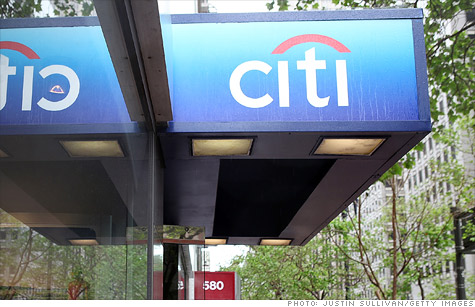Search News

Citigroup has been ordered to face trial over alleged securities fraud in July of next year.
NEW YORK (CNNMoney) -- A judge rejected a proposed $285 million mortgage securities fraud settlement between Citigroup and the Securities and Exchange Commission on Monday, saying the deal was "neither fair, nor reasonable, nor adequate, nor in the public interest."
Judge Jed Rakoff said that the settlement announced last month, under which Citi neither admitted nor denied the SEC's allegations, deprived the public "of ever knowing the truth in a matter of obvious public importance."
He instead ordered Citi to face trial over the allegations in July 2012.
"[I]n any case like this that touches on the transparency of financial markets whose gyrations have so depressed our economy and debilitated our lives, there is an overriding public interest in knowing the truth," Rakoff, a U.S. district judge in Manhattan, wrote in his decision.
The SEC's pattern of allowing big banks to reach settlements without admitting or denying wrongdoing, Rakoff added, has been "hallowed by history, but not by reason."
Robert Khuzami, director of the SEC's enforcement division, responded that the proposed settlement was "fair" and "reasonably reflects the scope of relief that would be obtained after a successful trial."
He added: "Refusing an otherwise advantageous settlement solely because of the absence of an admission [of wrongdoing] would divert resources away from the investigation of other frauds and the recovery of losses suffered by other investors not before the court."
Citi spokeswoman Danielle Romero-Apsilos said in an e-mail that the bank "respectfully disagree[s]" with the judge's ruling.
"In the event the case is tried, we would present substantial factual and legal defenses to the charges," she added.
The SEC has alleged that in 2007, Citi created and sold a mortgage-related collatarized debt obligation, or CDO, called Class V Funding III.
According to the SEC complaint, one CDO trader characterized the asset group in internal communications as "a collection of dogshit" and "possibly the best short EVER!"
In marketing materials, however, the assets were described as "attractive investments rigorously selected by an independent investment adviser," Rakoff's decision said.
After marketing the CDO, Citi (C, Fortune 500) then took a short position -- or bet against -- the security as the housing market deteriorated, bringing in a net profit of $160 million for the bank. Meanwhile, investors lost more than $700 million.
Litigation is also pending against Brian Stoker, the Citi employee alleged to be primarily responsible for structuring the CDO.
The SEC has settled a string of similar complaints in recent months, including agreements with Goldman Sachs (GS, Fortune 500) and JPMorgan Chase (JPM, Fortune 500).
Rakoff, though, has been in a thorn in the agency's side in recent years, rejecting a proposed $33 million settlement in 2009 between the SEC and Bank of America (BAC, Fortune 500) over allegations that BofA lied about bonuses for Merrill Lynch & Co. employees following the firms' merger. That settlement was later revised upward to $150 million, which Rakoff reluctantly approved, calling it "half-baked justice at its best."
Shares of Citi were up 6%, although the gains came before the judge's ruling. ![]()